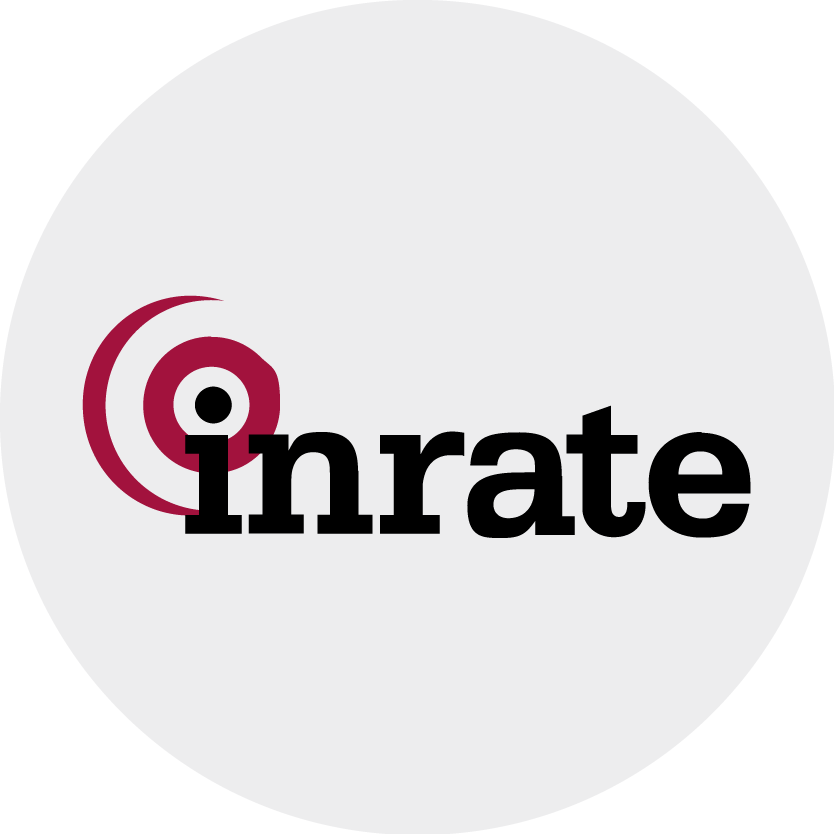In 2023, Diversity, Equity, and Inclusion (DEI) initiatives integrated into their operations. However, by 2025, there has been a noticeable trend of companies scaling back or deprioritizing these efforts, often without public communication.
DEI is a fundamental component of Environmental, Social, and Governance (ESG) investing strategies, as financial institutions now evaluate risks through DEI metrics. Companies with gender-diverse leadership teams have a 39% greater likelihood of financial outperformance, up from 15% in 2015. Furthermore, organizations that prioritize gender inclusivity often exhibit enhanced governance and innovation, leading to sustained financial success. For instance, a workplace characterized by diverse leadership and inclusion delivers better governance and innovation, historically resulting in improved financial performance when extended over time.
The ESG landscape is evolving due to recent moves to scale back DEI initiatives. Legal and political pressures in the United States (U.S.) are hampering the implementation of diversity-focused policies, with investors becoming increasingly concerned. How will the removal of corporate DEI commitments impact organizations? This shift is likely to influence ESG risk ratings, corporate resilience, and investment decision-making processes.
Given the current unpredictability of post-DEI governance, it is crucial for investors to closely assess these developments.
Understanding DEI Rollbacks
What Are DEI Rollbacks?
A DEI rollback refers to institutional and corporate decisions to reduce or eliminate initiatives aimed at supporting diversity, equity, and inclusion in the workforce, including:
- Policy Reversals: Organizations are scaling back or discontinuing their DEI initiatives in response to legal challenges or political opposition.
- Reduced Corporate Commitments: Major publicly traded companies are shifting resources away from DEI programs, minimizing the disclosure of DEI performance metrics, and reducing the publication of DEI-related information.
- Legal and Regulatory Challenges: Court rulings and government mandates, particularly those related to affirmative action and race-conscious hiring practices, along with lawsuits, are creating constraints for companies focusing on supplier diversity and similar diversity initiatives.
Key Sectors Impacted by the DEI Rollback
- Financial Services: The financial sector is witnessing a subtle yet significant retreat from DEI initiatives. Major institutional investors and proxy advisors, including ISS, are showing reduced support for shareholder resolutions tied to DEI commitments. As a result, companies are facing less external pressure to meet ambitious diversity benchmarks. DEI is increasingly being deprioritized in strategic investment discussions within boardrooms—a shift that may carry long-term implications for both performance and stakeholder trust.
- Technology & Healthcare: In both the Technology & Healthcare industries, DEI efforts are facing rising legal scrutiny —particularly around hiring practices and supplier diversity programs. Faced with lawsuits and growing compliance risks, several large corporations are reassessing or scaling back their DEI strategies. This retreat has come at a time when employee expectations for inclusive, equitable workplaces are high, especially among younger and more diverse talent pools.
- Energy & Manufacturing: Traditionally slower to adopt DEI frameworks, the Energy & Manufacturing sectors are showing further stagnation. For some, diversity policies remain low on the agenda, if present at all. But ignoring DEI is not without consequences — from reputational risks and talent acquisition challenges to potential misalignment with global ESG standards. In an evolving regulatory and stakeholder environment, continued inaction could hinder long-term competitiveness.
Multiple Factors Contributing to the Regression of DEI Initiatives
- Political & Legal Shifts: Political forces in the U.S. are seeking to limit the scope of ESG and DEI policies through new restrictive laws and legal challenges targeting both approaches.
- Investor Backlash & ESG Fatigue: Some institutional investors are scaling back their support for ESG-related pressures, believing that DEI-related metrics lack financial impact or have moved beyond reasonable limits.
- Corporate Risk Management: In response to growing risks, organizations are adopting one of two strategies—reducing their DEI initiatives—or removing them from public view to minimize exposure.
Link Between DEI and ESG Risk Ratings
DEI serves as a crucial element under the social section of ESG risk ratings for assessing how organizations manage social risks and operational effectiveness. Strong DEI initiatives enable companies to achieve lower ESG risk as employee engagement improves while innovation and better reputational strength become evident. The increasing number of organizations reversing their DEI commitments indicates that ESG risk evaluation might undergo significant changes.
DEI’s Role in ESG Ratings
Financial institutions depend on ESG risk ratings to evaluate investment risks, with DEI serving as an essential factor in these evaluation processes. Organizations with strong DEI strategies have superior ESG risk scores due to the following factors:
- Stronger Employee Retention and Productivity: Workplaces exceeding diversity standards tend to have increased employee retention as well as better productivity.
- Reputational Resilience: Businesses that make distinct public declarations about DEI have better brand reputations while facing fewer negative media incidents.
- Regulatory Alignment: Many regulatory bodies, including those in the EU and select areas in the U.S., support corporation DEI policies due to their alignment with developing ESG frameworks.
A reduction in DEI programs produces lower ESG performance scores, which magnifies reputation and compliance threats. Organizations that reduce their DEI focus should expect their social risk ratings to fall, with higher exposure to ESG risks, according to investors.
Read more: ESG Risk Ratings vs ESG Impact Ratings
Case Studies: DEI and ESG Performance
- McKinsey research shows that organizations positioned in the top performance segment in terms of executive team diversity achieved 25% higher financial outcomes than their competition. Thus, companies that let their DEI initiatives diminish will give up their competitive market advantage.
- According to Eco Active, firms that have effective DEI frameworks demonstrate better ESG assessment outcomes while facing reduced shareholder skepticism.

Implications for Investors Increased Financial and Operational Risks
Investors who rely on ESG portfolios need to consider additional risks from companies that abandon their DEI commitment initiatives. Companies that reduce their DEI programs are likely to experience diminishing workforce morale alongside reputational harm and lower stakeholder trust, consequently creating persistent financial threats.
Key risks include:
- Talent Drain & Productivity Decline: Talent loss and decline in productivity become greater risks for organizations that decrease focus on their DEI programs specifically targeting their diverse workforce. Organizations face both short-term and long-term damage to performance due to lower innovation capabilities.
- Regulatory & Compliance Risks: Various institutional investors must adhere to ESG compliance requirements. Firms that eliminate DEI programs may face both regulatory penalties as well as exclusion from ESG-focused funds due to the increased scrutiny of their DEI-related disclosures.
- Reputational Fallout & Market Valuation Risks: Investors need to assess the impacts of rollback decisions on the brand image as such decisions negatively affect market valuation through diminished consumer loyalty.
Investment Strategy Adjustments
Financial institutions engaged in ESG investing must change their strategies because of the rising trend of DEI rollback actions across businesses. Asset managers must conduct framework reviews for ESG while upgrading their DEI analysis as part of their expanded risk evaluation processes.
Key adjustments may include:
- Enhanced ESG Due Diligence: Investors can use improved ESG due-diligence practices with dedicated DEI assessment measures to spot businesses with declining social credibility.
- Portfolio Diversification: Investors supporting companies with robust DEI policies safeguard themselves against regular shifts in social risk factors.
- Active Engagement & Shareholder Advocacy: Institutional investors can influence and advocate ongoing DEI dedication among companies through proxy voting and shareholder resolutions.
The Bigger Picture: ESG Trends and Future Outlook
DEI initiatives face rollback status due to several reasons. The recent rollback in DEI represents part of a broader change in ESG trends as companies now face regulatory uncertainties, political shifts, and changing investor demands. Financial institutions require a deep understanding of how DEI rollbacks relate to ESG trends as it enhances their ability to manage risks, construct investment portfolios, and sustainably invest while meeting compliance expectations. .
Regulatory Influence on DEI and ESG
- Modern regulatory systems directly form the basis guiding corporate DEI policy development. The EU and U.K. forces maintain their aggressive stance toward enhanced ESG disclosure standards; however, the U.S. is witnessing rising opposition against ESG requirements from political leaders. The state authorities in Texas and Florida have started implementing restrictions targeting investments with ESG or DEI considerations. The regulatory requirements announced by the SEC through its climate disclosure rule and the EU with the Corporate Sustainability Reporting Directive (CSRD) are forcing businesses to reveal their material ESG risks, including workforce diversity.
- Companies failing to maintain their DEI commitments are anticipated to experience increased legal exposure together with negative reputation effects and lose valuable shareholder investments.
- The financial sector shows mixed responses through its in-depth analysis and active participation in the situation. BlackRock and State Street, among many other significant asset management firms, have recognized DEI elements as financial components while actively working with companies about ESG matters. More shareholders today are filing resolutions against companies that reverse their social commitments through shareholder activism campaigns.
- ESG-linked funds are expected to modify their screening policies to give negative scores to companies that make weak commitments toward DEI. ESG funds focused on DEI objectives are exhibiting improved resilience data compared to standard investment funds, which validates the relationship between potent DEI policies and financial endurance.

Conclusion
Financial institutions must recognize that DEI rollbacks introduce significant ESG risks, affecting corporate governance, reputational stability, and long-term financial performance. As regulatory frameworks evolve globally, companies failing to uphold DEI commitments may face increased scrutiny, impacting their ESG risk ratings and investor confidence.
To mitigate these risks, investors should actively monitor ESG scores, engage with companies on DEI policies, and reassess portfolio exposure. Shareholder activism and sustainable investment strategies will play a key role in holding corporations accountable while ensuring financial resilience.
Despite political resistance in some regions, ESG remains a critical factor in investment decision-making. In the long run, companies that maintain strong DEI commitments are likely to outperform those that do not, making it imperative for financial institutions to stay informed and adapt to the shifting landscape of sustainable finance.


